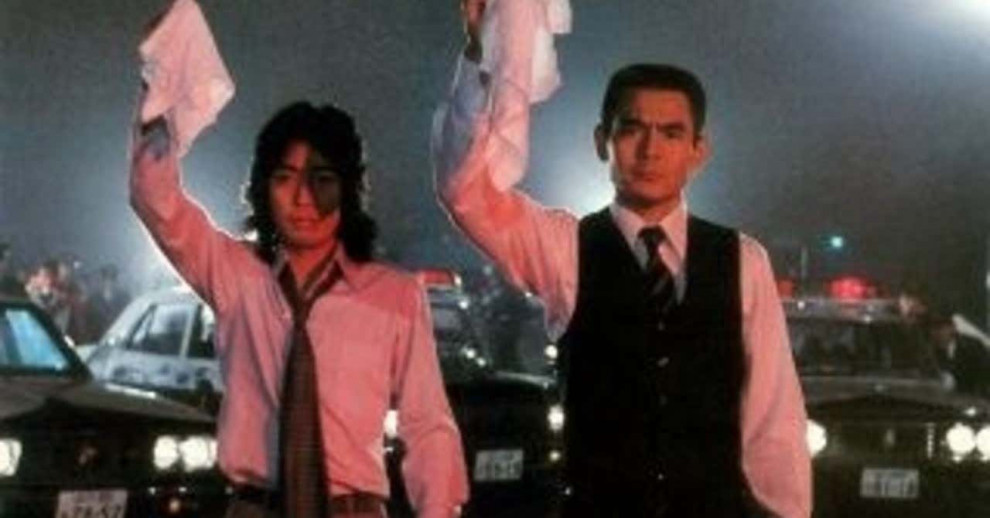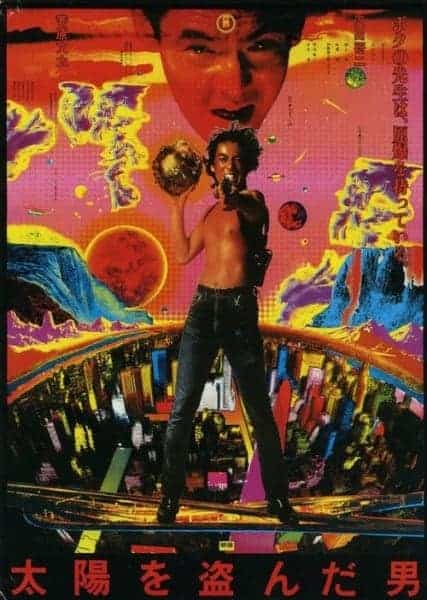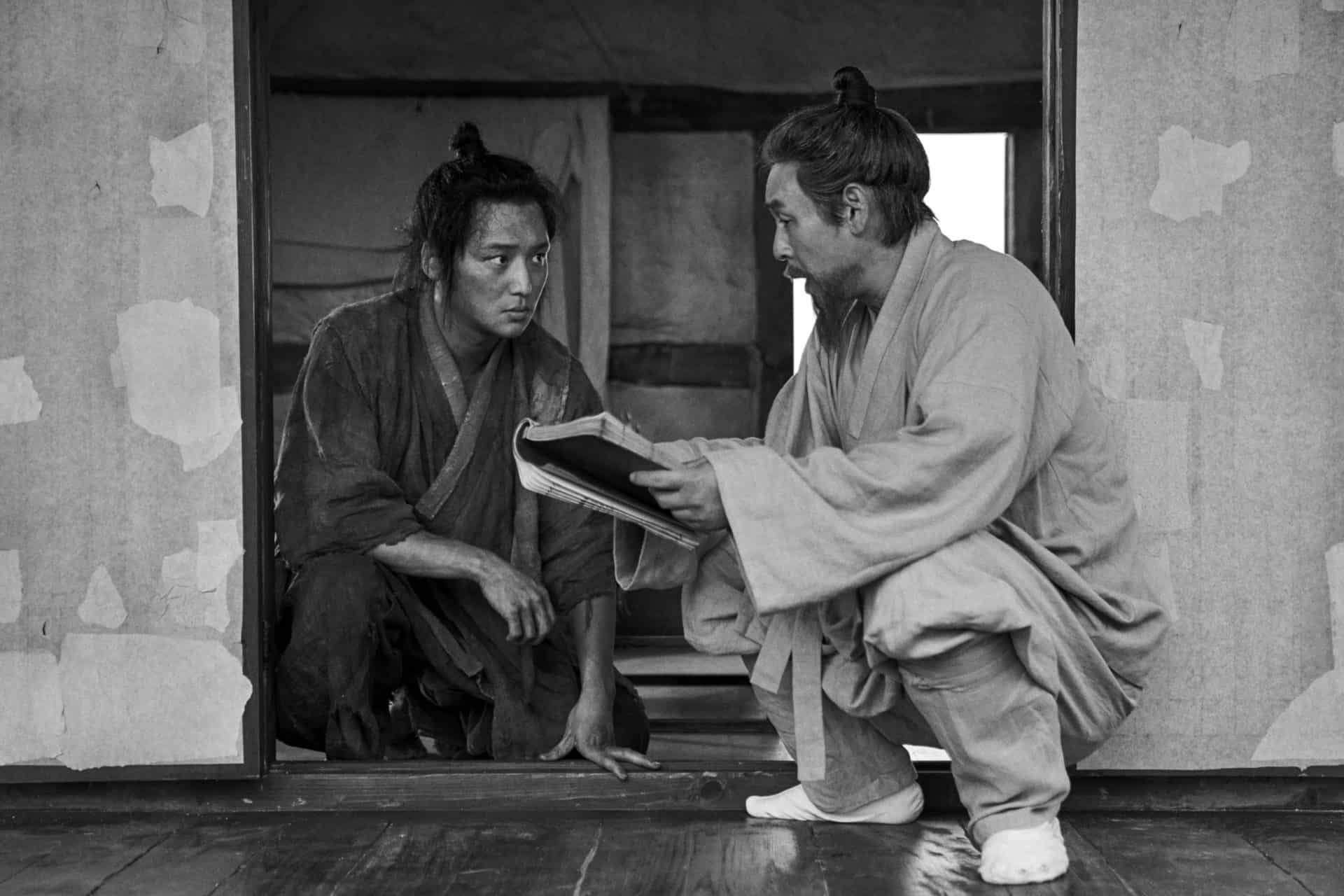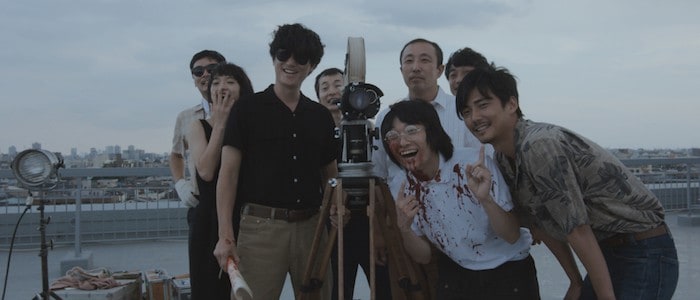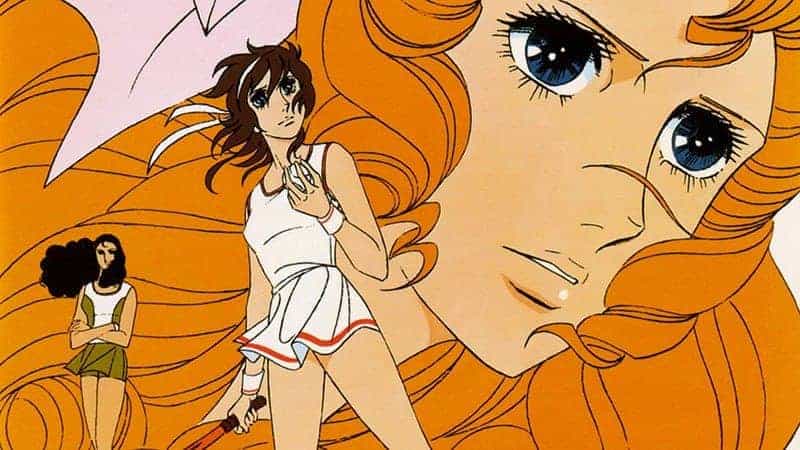Quite a controversial film, particularly for its too detailed depiction of how to construct an atomic bomb and a number of scenes that can only be described as beyond controversial, “The Man Who Stole the Sun” has currently achieved the status of cult, despite being both a commercial and a critical success upon its release in Japan, for a number of reasons we will deal with going forward.
Buy This Title
on Amazon by clicking on the image below
The titular man is high school science teacher Makoto Kido, a rather strange individual who boasts long hair and an almost surreal behavior in campus, which includes him practicing karate, hanging from trees with ropes, and caring very little for his classes, where he either sleeps or teaches his students the procedure of making an atomic bomb. The people in the school mock him, calling him ‘Bubblegum' not so secretly, but everything changes when Makoto, along with hard-nosed Inspector Yamashita manage to deal with a WWII veteran who invades the bus carrying the students of Kido's class taking them as hostages, demanding that he has a direct word with the Emperor. The rather agonizing and dramatic situation ends up with the veteran dead and Makoto having achieved the status of hero in the school grounds. However, the only thing he has in mind is to construct an atomic bomb, and it is soon revealed that the weird stuff he was practicing in school were actually training sessions for him to invade the building that holds the plutonium needed for the bomb, something he actually manages in an anime-like, rather surrealistic and extreme sequence.
Ending up with enough plutonium to make one real and one mock bomb that only holds enough material to be detected by sensors, Kido proceeds with his plans, with the middle part of the film dealing exclusively with his efforts at construction and his subsequent teaching of his methods to his students. As soon as the bombs are complete, Kido, with a botched voice, contacts the police and starts making his threats, with all of his demands though, bordering on the ridiculous, as for example, for baseball matches that go on beyond 9 pm, not to be interrupted by the news. Before that, he also demands that his only contact from the police is Yamashita, thus establishing a rather intriguing rivalry, which becomes even more intense upon the involvement of a very beautiful radio producer nicknamed “Zero”, who actually suggests that he uses his newfound powers to bring Rolling Stones to perform in Japan. Although the police tries to conceal the fact that a terrorist holds a nuclear bomb and to satisfy his demands, the situation escalates quickly, and inevitably, all hell breaks loose.
Having 147 minutes in their hands, and despite the large part of the film that only deals with Makoto constructing the bomb while humming music from anime, allowed Kazuhiko Hasegawa and co-writer Leonard Schrader to present two very interesting characters, their feud, and a number of sociopolitical comments, retaining though, a slapstick sense all the while. The balance they manage to keep between the seriousness and the dramatic essence of all that is happening and this almost anime-like aesthetic is one of the best traits of the narrative, which prevents the viewer from any “easy” feelings or thoughts while experiencing the movie. The main medium for this approach is Makoto, who always appears somewhat aloof no matter what is happening, with the scene with the veteran and the one in the pool being the highlight of his attitude. Kenji Sawada is exceptional in the role, presenting a genuine eccentric who would easily be laughed at if he wasn't a nuclear terrorist. The same applies to Zero, with her character seemingly functioning as a mocking to the whole of the Japanese culture, with the way she perceives a truly dire situation as means of entertainment and excitement highlighting the fact in the most eloquent way. Gorgeous Kimiko Ikegami is also excellent both in the aforementioned part and as the apple of discord between two very different men.
In that last regard, Yamashita seems to be the embodiment of the rightist, duty and goal-oriented then previous generation, a fact that is presented by both his attitude (dedication to work – no time for entertainment) and a number of dialogues that have him highlighting his pride for defending the city for the whole of his professional life. Bunta Sugawara is also impressive in the part, in a role that seems to fit him perfectly. His rivalry with Makoto, who is almost a hippy, is one of the most entertaining aspects of the narrative, with Hasegawa also stressing it through the appearance of the two men, which gets even more intense due to Makoto's frequent disguises. The fact that Makoto continuously manages to mock the police and Yamashita, and the final fight, could also be perceived as a mocking to the right “faction” of the country, and even one of its “sacred” practices, hara-kiri. Lastly, two more evident comments seem to concern the way the country treated war veterans, and the dependence Japan has on nuclear power.
However, anyone's perception of the aforementioned comments could be wrong, since Hasebe does not let them become clear, through the aforementioned tactic that always includes slapstick elements, thus intensifying the sense of ambiguity the viewer feels regarding the whether the film is serious or just a silly comedy.
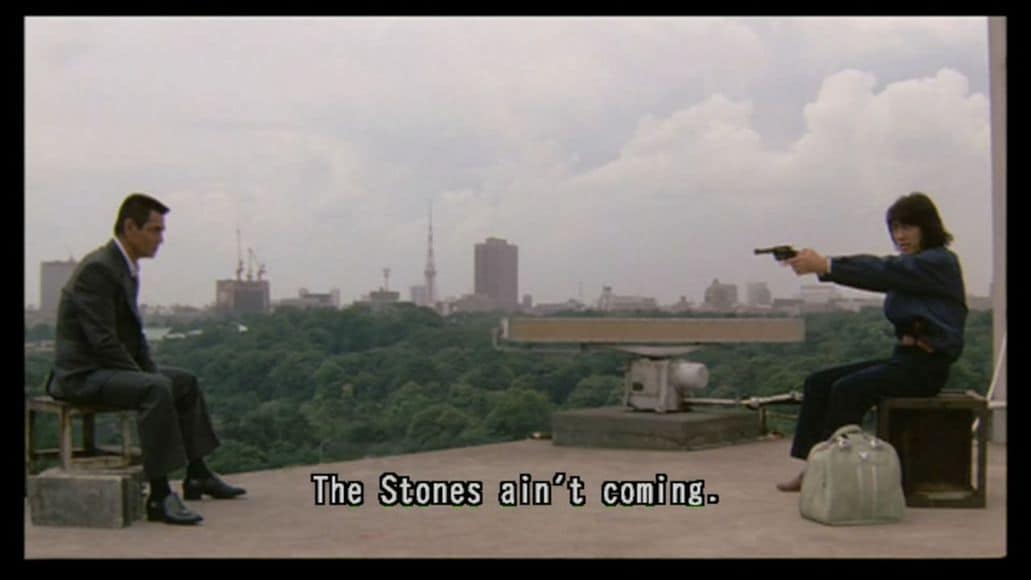
Tatsuo Suzuki's cinematography is great in its implementation of all the aforementioned elements, with him using a number of techniques to highlight both the dramatic and the comedic aspect, along with the differences between the two rivals, while a number of scenes are filled with ominous beauty. Akira Suzuki's editing is as weird as the whole of the movie, with him implementing both long takes and frequent cuts on occasion, adding to the overall aesthetics of the narrative. Special mention should also be given to both Yoshinaga Yokoo's production design and the people dealing with set decoration, both for the presentation of the construction of the bomb and the realistic presentation of a number of different settings.
“The Man Who Stole the Sun” seems to be a movie that has both everything and nothing, and that is where its biggest value and its cult status lies.


